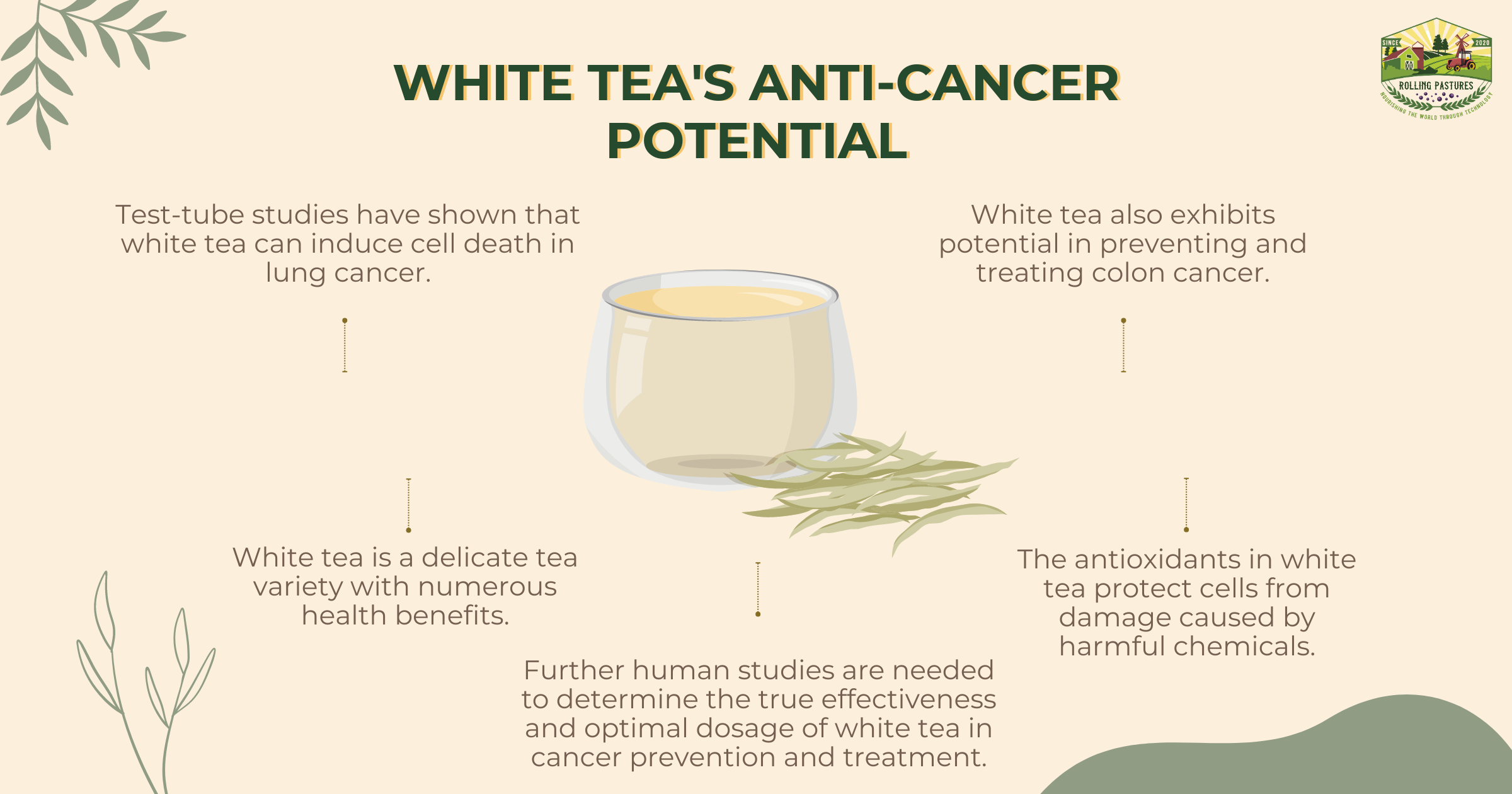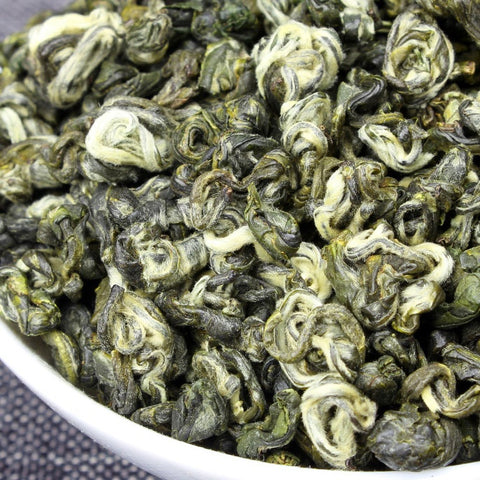
Blog
Exploring White Tea's Potential to Fight Cancer: Sip Your Way to a Healthier Future
July 10, 2023
Share:
Public health continues to be severely hampered by cancer, the second largest cause of death in the US. Researchers are investigating the potential of natural chemicals in their quest for efficient preventative and treatment strategies. White tea is one such substance that is receiving attention; it is recognised for its delicate flavour and a host of health advantages. In this blog article, we examine the results of studies looking into the possible anticancer properties of white tea while emphasising the need for more human subject research.
Why White Tea is so special?
White tea is known to be one of the most delicate tea varieties as it undergoes relatively little processing, white tea is regarded as one of the most delicate tea kinds. The name "white" tea comes from the fact that white tea is plucked before the leaves of the tea plant fully unfold and while the immature buds are still coated in tiny white hairs.
Test-tube Studies on White Tea's possible Anticancer Effects:
White tea has been the focus of various studies testing its possible anticancer effects. In a noteworthy study, scientists found that white tea extract caused cell death in distinct lung cancer types. This research shows that white tea may one day be used as a lung cancer natural therapy. Although the results are promising, it is important to note that the high doses of white tea extract used in these trials may not be an accurate representation of the levels frequently eaten by people.
White Tea and Colon Cancer:
Colon cancer, a common kind of the disease, has been the subject of more research into the effects of white tea. Researchers investigated the effects of white tea extract on colon cancer cells in two different test-tube experiments. The findings were encouraging since white tea extract showed the capacity to stop colon cancer cells from growing and spreading. Additionally, the antioxidants in white tea extract served as a barrier, guarding healthy cells from damage brought on by dangerous chemicals. These results raise the possibility that white tea may play a role in the prevention and treatment of colon cancer, but further human subjects-based research is required to determine its genuine efficacy.
The Need for Human Studies:
Human studies are essential to completely comprehend the impact of consuming white tea on cancer prevention and therapy, even though test-tube results offer useful insights. By taking into account many aspects that influence how the human body reacts to chemicals, human studies assist in bridging the gap between laboratory research and real-world situations. They give a more realistic picture of the possible advantages of drinking white tea and its effect on cancer. Human studies also enable the assessment of probable adverse effects and the best dose. It is necessary to take into account variables like individual variance, absorption rates, and metabolism. White tea extract appears to be a promising candidate for use as an anticancer drug, according on early results from experiments conducted in test tubes. The observed effects on lung and colon cancer cells show that white tea's antioxidants have both inhibitory and protective characteristics. The use of larger amounts of white tea extract in these research than what is generally eaten in daily life should be noted. Therefore, more study including human participants is required to confirm these findings, as well as to establish the ideal dosage and any potential negative effects.
Future research findings are eagerly awaited, but it is worthwhile to have white tea as part of a balanced and healthy lifestyle now. White tea is an attractive option for people looking for all-natural ways to enhance their wellbeing because of its wealth of health advantages, which may include possible anticancer effects. Never forget to get medical advice before changing your diet or treatment regimen significantly.
Disclaimer: The information offered in this blog article is not medical advise. It is merely meant to provide information. Please seek the advice of a licenced healthcare expert if you have questions regarding cancer prevention or treatment in order to receive personalised advice.






